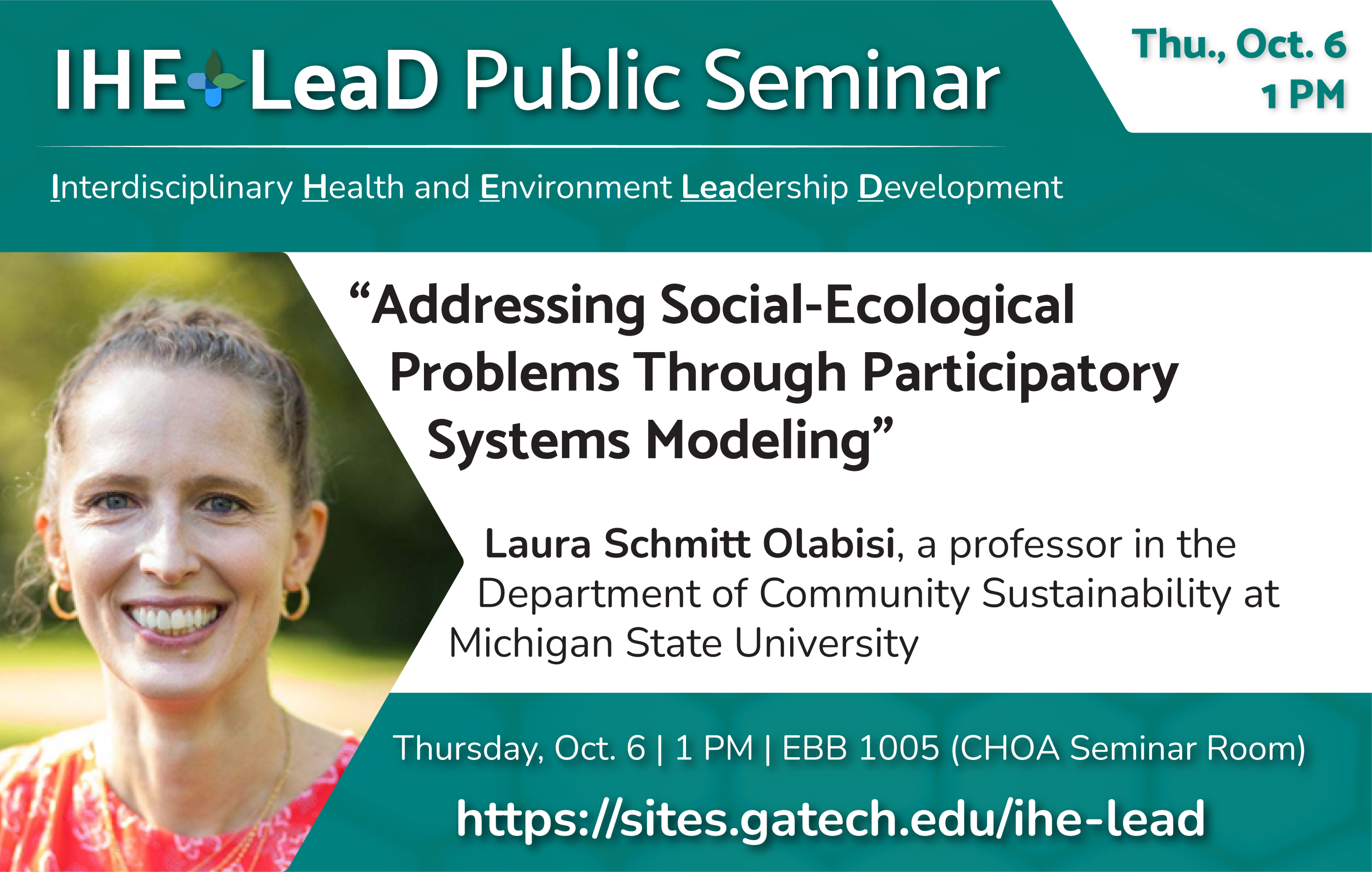
Join us for a special public seminar hosted by the Interdisciplinary Health and Environment Leadership Development (IHE-LeaD) program. Laura Schmitt Olabisi, a professor in the Department of Community Sustainability at Michigan State University, will give her talk entitled “Addressing Social-Ecological Problems Through Participatory Systems Modeling.”
Abstract: From the COVID-19 pandemic, to climate change, to structural inequality, the most pressing issues facing scientists and decision makers in the 21st century are systems problems. These problems exhibit emergent behavior; there is often disagreement around how to solve the problem or even what the problem is; and interventions to address the problem may be ineffective or even backfire. A transdisciplinary approach to these problems is critical if real progress is to be made. Participatory systems modeling has emerged as a field of practice and a suite of tools and approaches for addressing systems problems in a transdisciplinary context. In this talk, I will describe some of the attributes of systems problems that make them challenging to work with, and give examples of modeling tools that can lend insight into these problems. I will also discuss two cases in which we used participatory systems modeling methods to gain insight into deforestation dynamics in Zambia, and the food system in Flint, Michigan.
Seminar Background: The Interdisciplinary Health and Environment Leadership Development (IHE-LeaD) program at GT facilitates impact-driven exchange and training at the intersection of human and environmental health. Seminar speakers present their work on impact-driven research at the intersection of IHE, and discuss opportunities for translate their work into actions with public impact and visibility. Sign up for the IHE seminars email list to receive regular updates (contact Gabi Steinbach: gsteinbach6@gatech.edu).